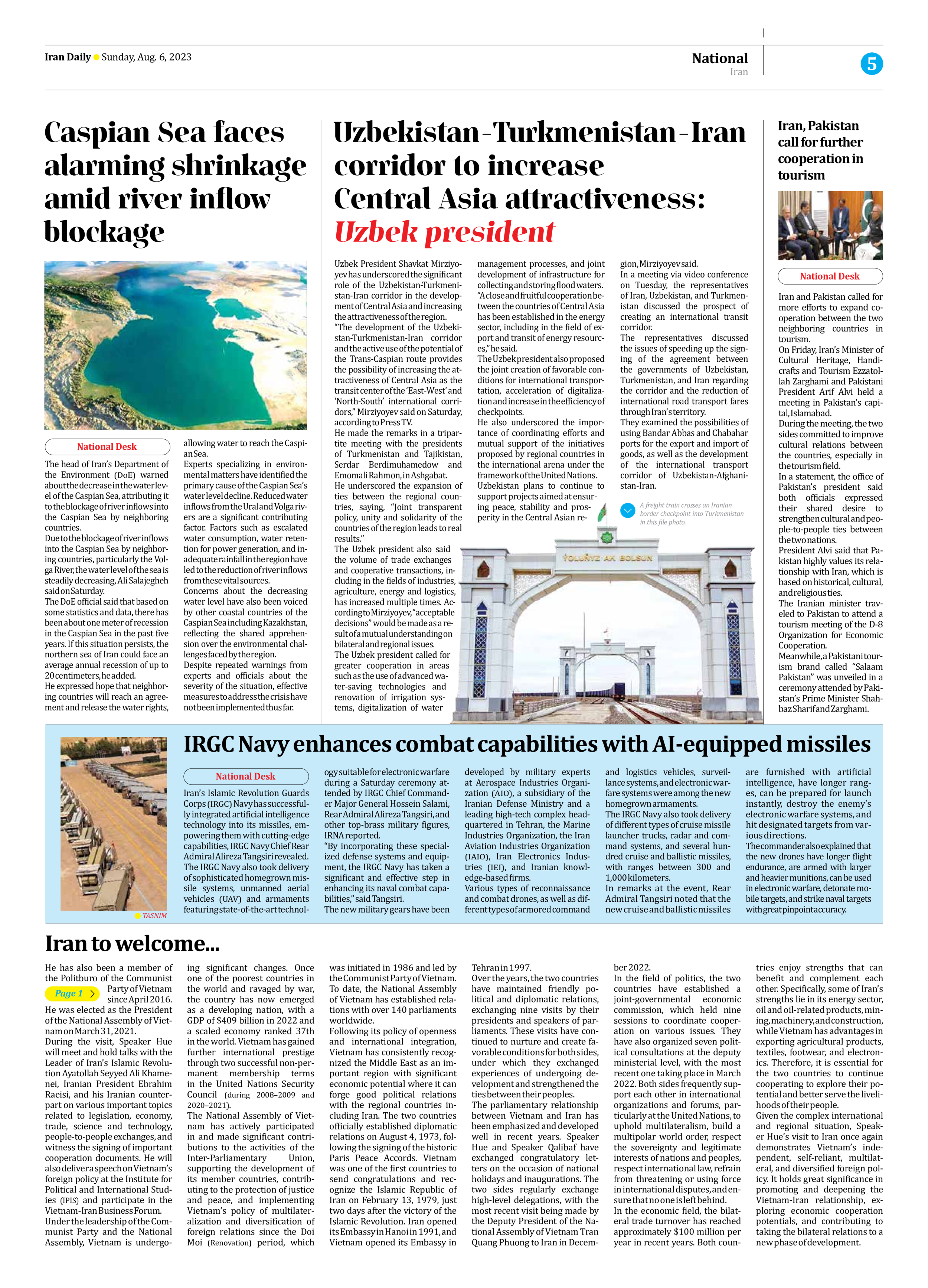
Caspian Sea faces alarming shrinkage amid river inflow blockage
The head of Iran’s Department of the Environment (DoE) warned about the decrease in the water level of the Caspian Sea, attributing it to the blockage of river inflows into the Caspian Sea by neighboring countries.
Due to the blockage of river inflows into the Caspian Sea by neighboring countries, particularly the Volga River, the water level of the sea is steadily decreasing, Ali Salajegheh said on Saturday.
The DoE official said that based on some statistics and data, there has been about one meter of recession in the Caspian Sea in the past five years. If this situation persists, the northern sea of Iran could face an average annual recession of up to 20 centimeters, he added.
He expressed hope that neighboring countries will reach an agreement and release the water rights, allowing water to reach the Caspian Sea.
Experts specializing in environmental matters have identified the primary cause of the Caspian Sea’s water level decline. Reduced water inflows from the Ural and Volga rivers are a significant contributing factor. Factors such as escalated water consumption, water retention for power generation, and inadequate rainfall in the region have led to the reduction of river inflows from these vital sources.
Concerns about the decreasing water level have also been voiced by other coastal countries of the Caspian Sea including Kazakhstan, reflecting the shared apprehension over the environmental challenges faced by the region.
Despite repeated warnings from experts and officials about the severity of the situation, effective measures to address the crisis have not been implemented thus far.







